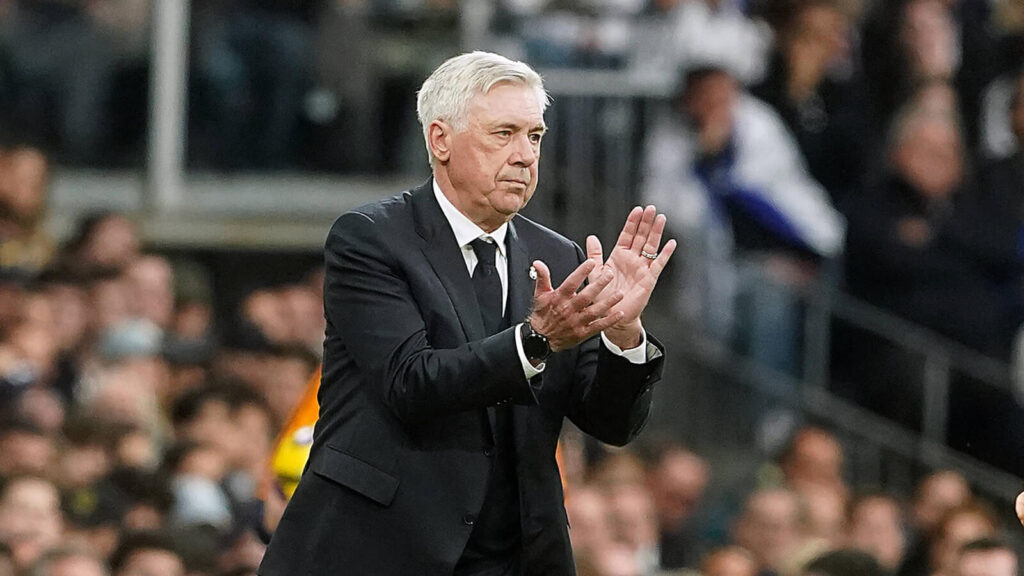Carlo Ancelotti is one of the greatest and most renowned football managers ever. Ancelotti stands out for being a flexible tactician, seeing to it that his tactics bring out the best of his players. His calmness allows him to manage high-pressure situations and find balance in his squads. Ancelotti enjoyed managerial success in the many elite leagues of Europe. This shows his flexible strategies are essential parts of his philosophy.
Dominance at AC Milan (2001-2009)
Ancelotti’s tenure at AC Milan remains one of the most defining periods of his career. He cemented their status as one of the most dominant teams of the early 2000s. During his time at Milan, he deployed the 4-3-2-1 formation. This allowed creative playmakers like Rui Costa and later Kaká to operate behind a central striker.
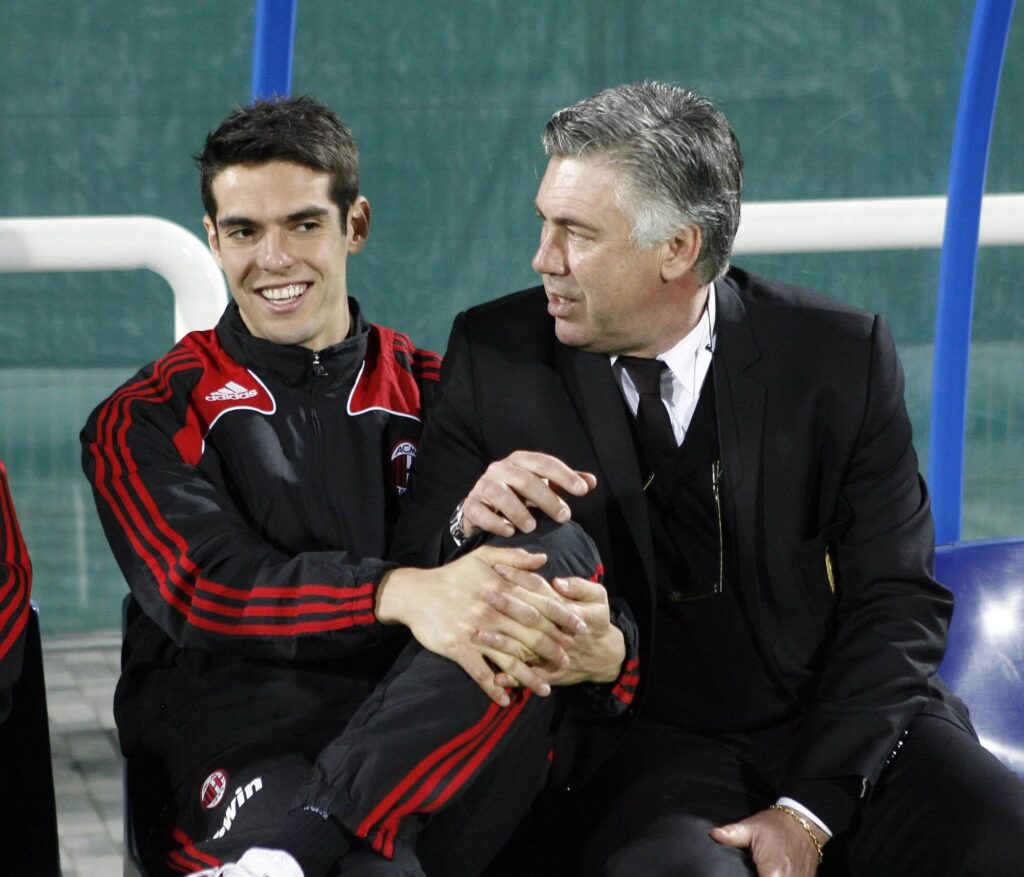
With Andrea Pirlo controlling from deep and with Maldini and Nesta at defence, Milan played tactical football. Under Ancelotti, Milan conquered Serie A, two UCL titles, National and International competitions. This made them the arch-nemesis of almost any team that got in the way.
Premier League Success with Chelsea (2009-2011)
Ancelotti’s move to Chelsea saw him adjust to the demands of the Premier League. He adopted a more direct and attacking 4-3-3 system that made full use of Chelsea’s attacking talent. He particularly focussed on Didier Drogba, Frank Lampard, and Florent Malouda. His debut season was a success, as Chelsea won the Premier League with a record 103 goals.
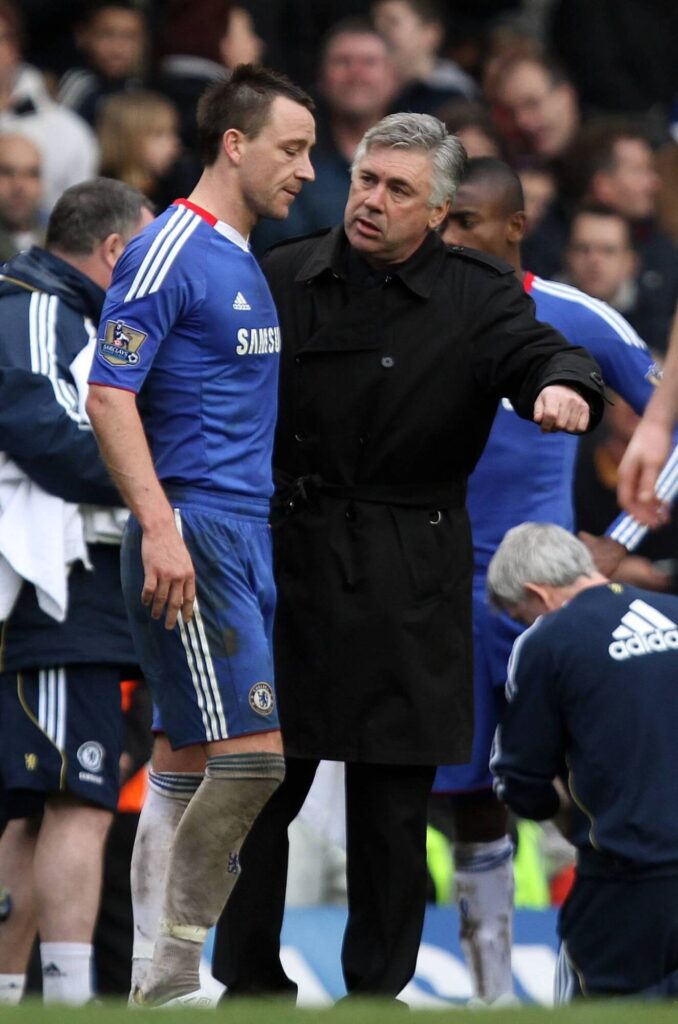
Ancelotti also won the FA Cup during the same year, completing a historic double. His capacity to mix attacking flair with defensive discipline was a testament to his versatility. His spell at Chelsea ended after only two seasons following his success.
Building PSG’s Foundation (2011-2013)
Ancelotti’s time at Paris Saint-Germain marked the beginning of the club’s dominance in French football. Though he did not win a trophy in his first half-season, he set the stage for the club’s future successes. In the season 2012-13, he won PSG’s first Ligue 1 championship in close to two decades. PSG was a European giant under Ancelotti, with talents like Zlatan Ibrahimović and Thiago Silva flourishing under him.
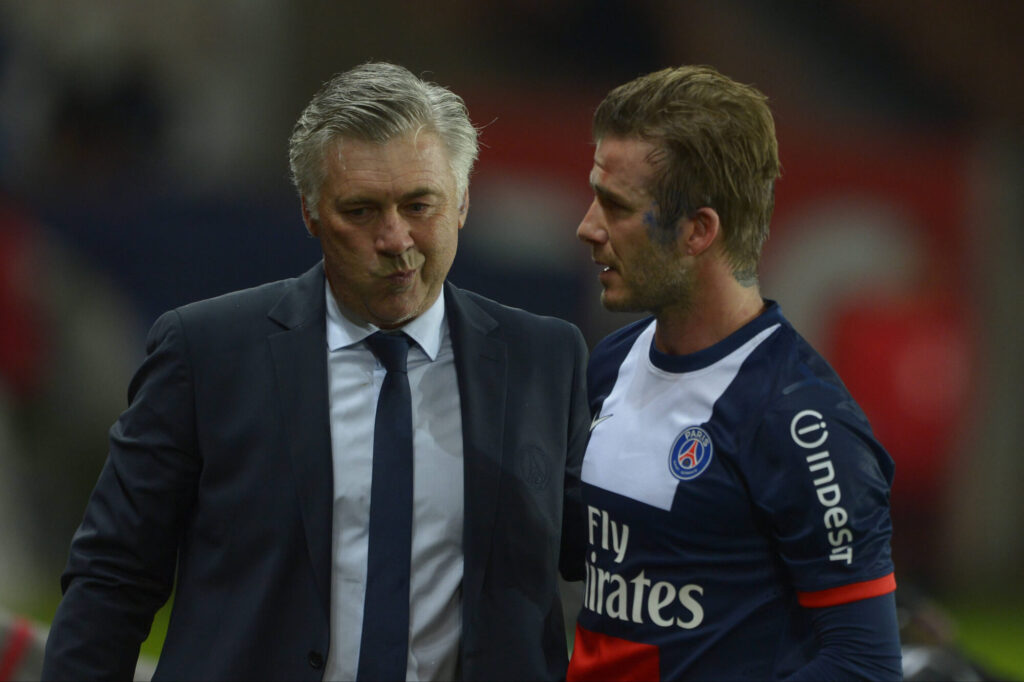
He played a crucial role in shaping PSG’s attacking football philosophy and team administration.
Initial Reign at Real Madrid (2013-2015)
Ancelotti’s tenure at Real Madrid is best remembered for delivering the club’s long-awaited tenth Champions League title, La Décima, in 2014. He successfully balanced an attacking trio of Cristiano Ronaldo, Karim Benzema and Gareth Bale. He also maintained midfield control through Luka Modric and Toni Kroos.
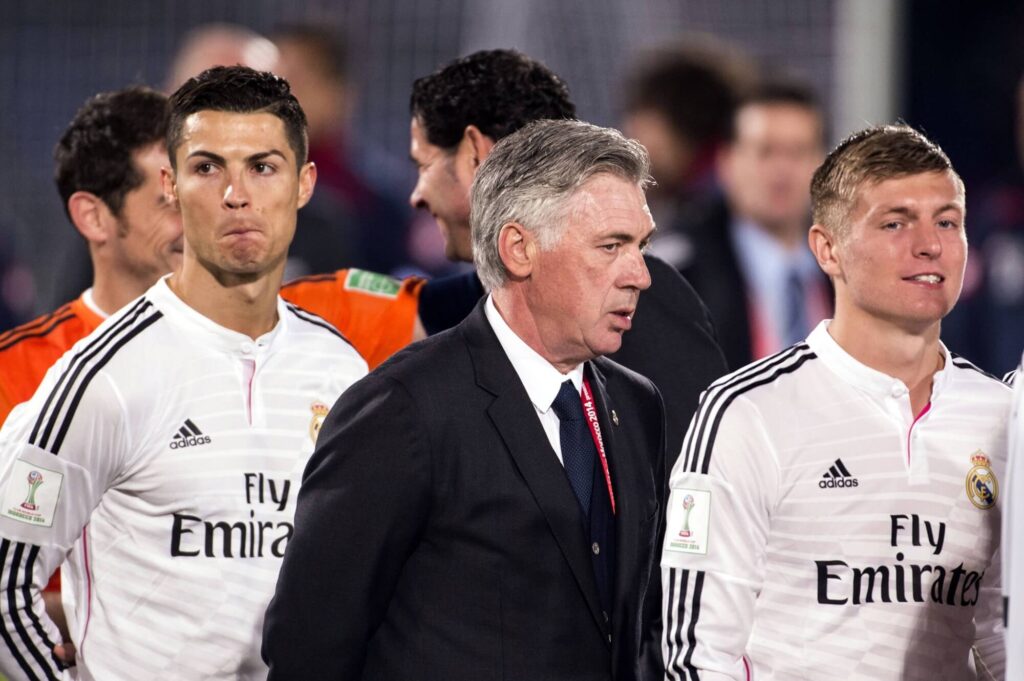
His tactical arrangement in a 4-3-3 pattern permitted Madrid to take over European football. It allowed swift changes and deadly counterattacks. In addition to the UCL, Ancelotti guided Real Madrid to Copa del Rey, UEFA Super Cup and FIFA Club World Cup triumphs.
Challenges at Bayern Munich (2016-2017)
After his first stint at Real Madrid, Ancelotti joined Bayern Munich. He won the Bundesliga in his debut season, surprising many critics. His strategy at Bayern was much the same as before. He let his marquee players like Robert Lewandowski, Arjen Robben, and Franck Ribéry have freedom on the field with defensive solidity. It is indeed true that Ancelotti excels in handling elite teams.
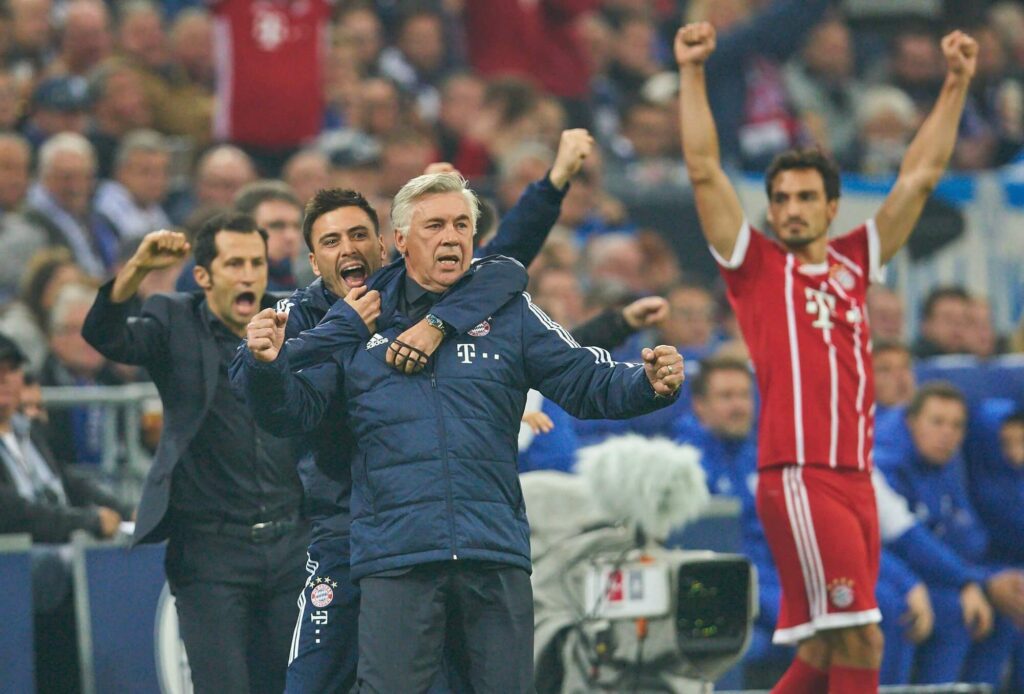
But his laid-back approach at times grates against those clubs that demand a more concrete tactical ideology. His experience in Germany reaffirmed this very idea.
The Second Stint at Real Madrid (2021-Present)
Ancelotti returned to Real Madrid in 2021, leading a younger squad in transition. After some initial skepticism, he led the team to a La Liga and UEFA Champions League double in 2021/22. His tactical adaptability enabled young stars such as Vinícius Jr., Rodrygo, Bellingham and Camavinga to shine. He played them more minutes, while keeping the team’s veteran core functional.
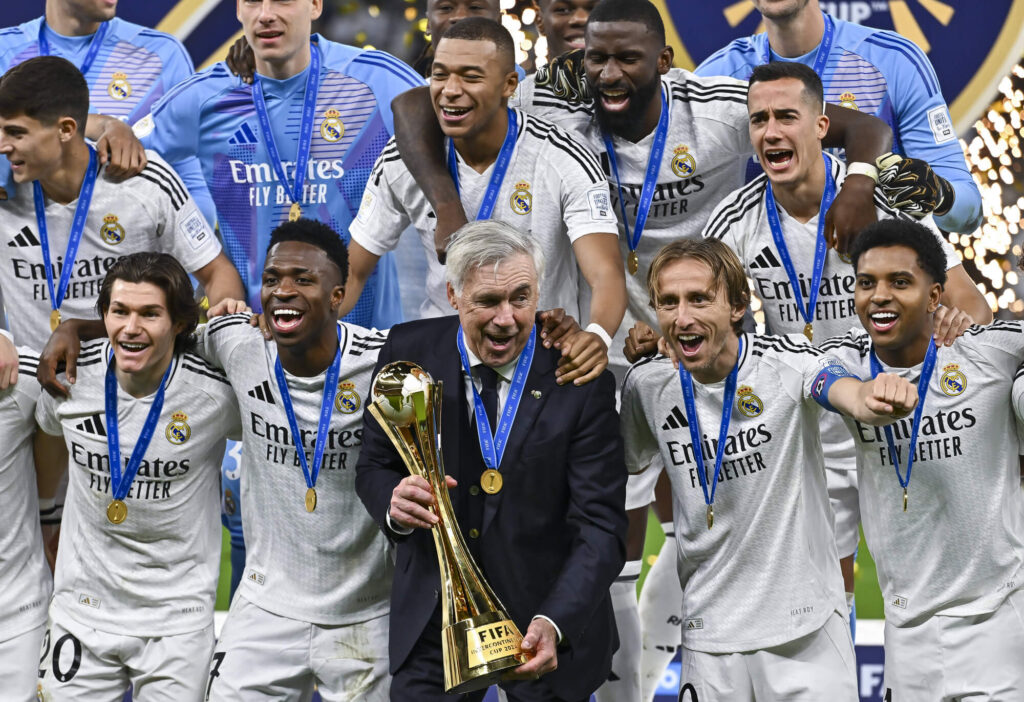
Madrid’s remarkable UCL run included stunning comebacks against PSG, Chelsea and Manchester City. They showcased Ancelotti’s ability to manage high-pressure situations. He’s won La Liga and Champions League titles with the team, showing his approaches are still applicable to this day.
The Master of Tactical Adaptability
One of the most defining aspects of Ancelotti’s management is his tactical flexibility. Unlike managers who adhere to a single playing style, Ancelotti tailors his tactics based on the squad at his disposal. At Milan, he implemented the 4-3-2-1 formation to use his playmakers effectively. At Chelsea, he embraced an attacking 4-3-3 to maximize their direct and physical style. At Real Madrid, he balanced counterattacks and control of the midfield with a flexible 4-3-3 formation. His talent for adapting tactics to the strengths of his team is part of why he has succeeded in various leagues and football cultures.
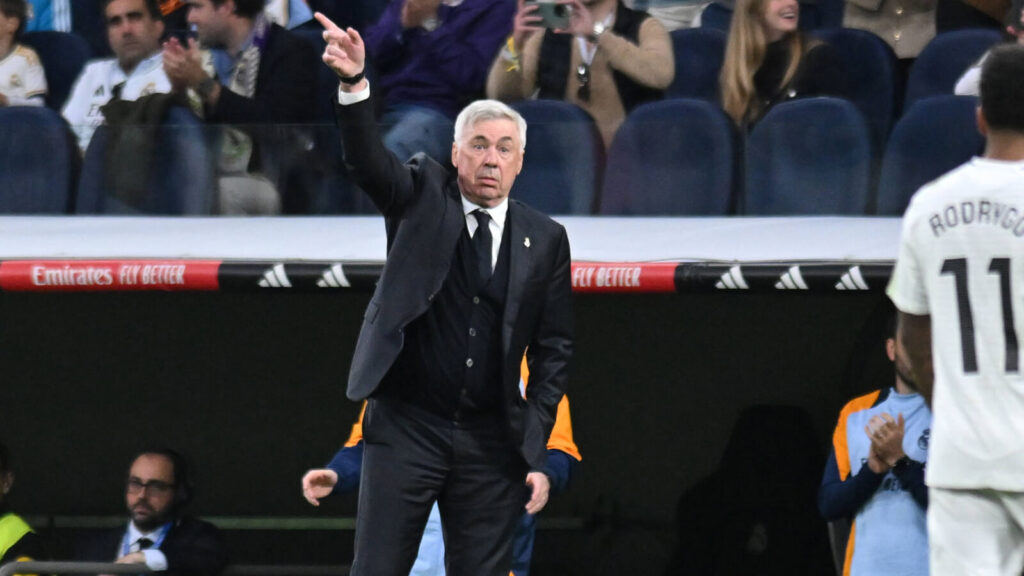
A Calm Leader in the Dressing Room
Football management is not just about tactics; it is also man-management. Managing big egos and superstar players is usually the problem for coaches. But Ancelotti possesses the art of creating a happy dressing room atmosphere. His level-headed, relaxed demeanor has earned him the respect and trust of some of football’s biggest names.
At Real Madrid, he had a team full of superstars like Cristiano Ronaldo, Luka Modric and Karim Benzema. Ancelotti creates a culture of trust and respect between him and the players. This gives them freedom to express themselves without compromising on team discipline. His players tend to praise him lavishly, with Ronaldo once declaring that Ancelotti was a father figure to him.
At Chelsea, his people skills were seen in their record-breaking title-winning season. He built a team in which veteran players such as Lampard and Drogba flourished alongside younger players. His capacity to build a good team spirit is a characteristic of his managerial approach.
Striking the Perfect Balance on the Pitch
The teams Ancelotti coaches play attractive football, but still, are clearly very disciplined. He isn’t that kind of manager who talks about possession first or purely defensive solidity. His tactics are clearly structured to be very solid defensively but also free up creative players so that they create attacking opportunities.
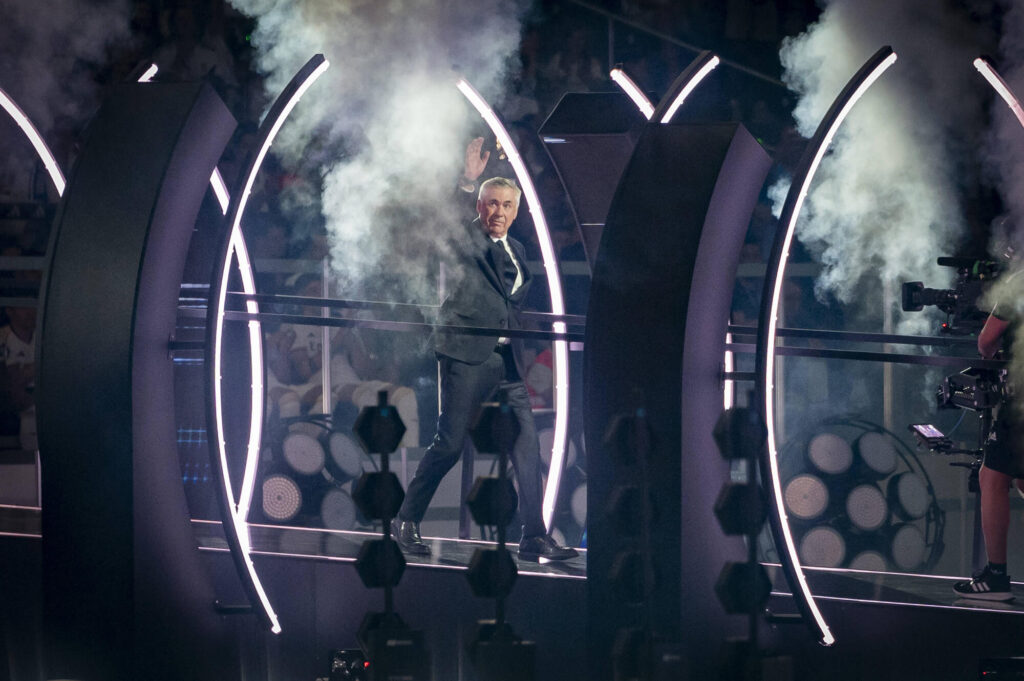
His Milan team was a perfect example of this balance. Milan played with both elegance and tactical intelligence. They played with a midfield led by Pirlo and defensive stability provided by Maldini and Nesta. In Chelsea, he adopted a more direct approach with the team. It gave Drogba and Lampard scope to play with attacking freedom. At Real Madrid, his balance enabled him to build a team that would take over European football. Modric and Kroos dominated the midfield, while the attacking line of Ronaldo, Bale and Benzema found spaces to attack.
A Legacy of Excellence
Carlo Ancelotti’s managerial philosophy is built on adaptability. He’s renowned for his superb man-management and well-proportioned tactical thinking. His capacity to adapt formations to star men has enabled him to thrive at several of world football’s biggest clubs. He has shown an unequalled skill at working with various playing styles and football cultures. His ability to manage high-pressure situations make him one of football’s most accomplished and most respected managers of all time. Ancelotti continues to demonstrate that knowledge, leadership and adaptability are the foundations of long-term success.
In our article series here, read about more great coaches that changed football.
